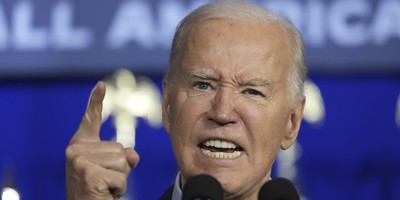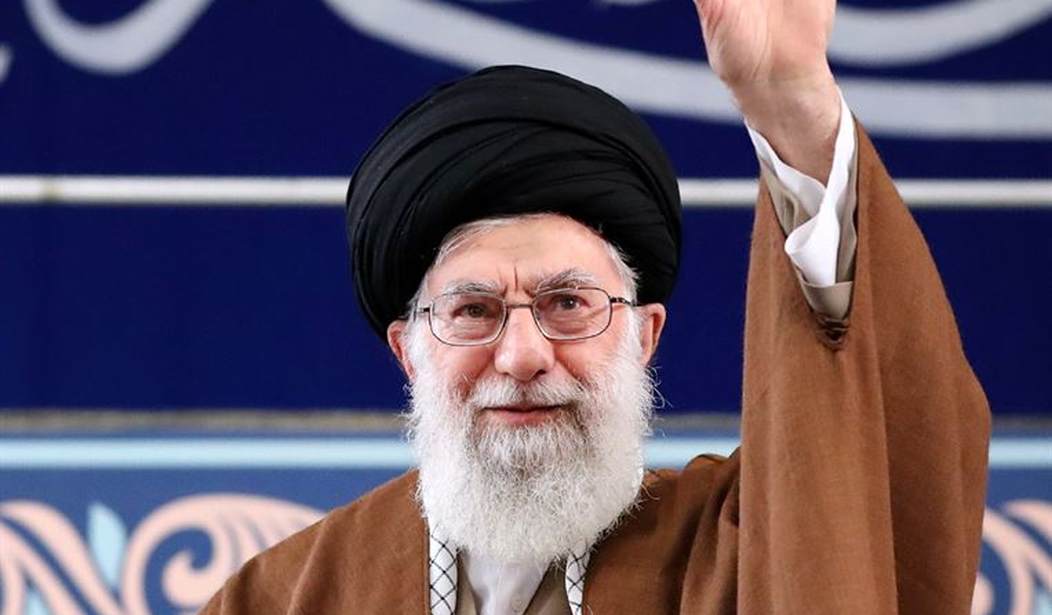Iranian eyes will be on Washington this week while looking over their shoulder at home. The Iranians are looking over their shoulder because a series of attacks attributed to them and their puppets in the Middle East are targeting Israeli commercial ships and firing rockets at Israel from Gaza and Syria. This is coupled with Israel’s reported retaliation against Iranian military ships, and explosion deep underneath an Iranian nuclear facility, raising eyebrows as to Israel’s reach and Iranian vulnerability.
Iranians are eying Washington this week as the Mossad director, Yossi Cohen, and Israeli National Security Advisor, Meir Ben-Shabbat, will be there to meet their US counterparts to discuss the Iranian nuclear threat. Israeli Chief of Staff, Aviv Kochavi, was also meant to make the trip but canceled due to dozens of rockets being fired at Israel from Gaza over the weekend, the potential Syrian threat, and Israel’s preparedness and response.
Either way, sending these top-level security and intelligence officials together, to meet with their US counterparts publicly, leaves no ambiguity: Israel is concerned about what seems to be a US push to return to the flawed 2015 (JCPOA) Iran deal. What are the issues and how might this play out vis a vis US-Israeli relations and beyond?
The high-level delegation will express Israel’s opposition to returning to the 2015 agreement. There’s no doubt, Israel will make its case and try to assess US goals, and to what degree the US will be transparent (even if differing), unlike during the Iran deal’s negotiating during which Israel was largely left in the dark. Israel will surely share intelligence, some old that was shared with President Biden’s predecessors, and maybe new surprises.
The most well-known of these was the 2018 Mossad operation demonstrating Israel’s prowess; carting off over half a ton of secret Iranian nuclear files from a warehouse in Tehran. It also proved Iranian intentions as being far from peaceful, then, or while negotiating the 2015 Iran deal.
Recommended
Israel will also try to assess how much is it a US priority to return to the Iran deal at all costs, and how eager the Biden administration will appear to do so. The US’ eagerness may allow Iran to exact broad concessions, if not payoffs as was done by the Obama administration. It may also mean that any new or revised deal won’t be any more secure than the previous one, giving Iran the ability to create nuclear weapons by 2030, just by following the deal. There’s real concern that the 2015 deal allows Iran to enrich uranium to 5%, but that now it’s doing so at 20%, and publicly aiming for 60%. Albeit with some stringent sanctions currently in place, Iran does so with virtual impunity and that worries Israel.
Minimally, Israelis want any deal to be “longer and stronger.” Israelis are concerned that the Biden administration wants a deal at all costs, regardless of whether it is a good deal, much less one that will keep Israel safe. The Biden administration is getting the same message from many Arab states, but less publicly.
All this takes place in the shadow of indirect negotiations between the US and Iran in Vienna about reviving the 2015 deal. White House spokeswoman, Jen Psaki suggested that Israel’s input would be heard but that the US will likely not be influenced, adding, “we have kept them (Israel) abreast as a key partner of these discussions — or of our intentions, and we will continue to do that on any future visits.” It’s concerning that even before such high-level and private conversations begin, the Biden administration is signaling it won’t be moved. This concerns Israel directly, but also because the Iranians take away the message that they can run the table on the Americans, again.
In advance of the Israelis’ visit, US National Security Adviser Jake Sullivan told Fox News that talks “have been constructive in the sense that there is real effort underway there with the permanent five members of the Security Council plus Germany on the one hand, and Iran on the other hand, to get on the table all of the issues related to both sanctions and nuclear issues so that we could end up back in the deal on a compliance-for-compliance basis…the United States is not going to lift sanctions unless we have clarity and confidence that Iran will fully return to compliance with its obligations under the deal.”
Despite this, officials in Jerusalem have expressed concern that Washington was not updating Israel transparently. There’s concern that the Biden administration is not sharing what it plans to offer Iran in the Vienna talks, or what “compliance-for-compliance” means. The Israeli leaders will do their best to discern this week what the US intentions are and whether the US will be transparent.
It was reported that one anonymous Israeli official expressed hope that Israel’s voice will be heard. “We don’t think [a return to the Iran deal is] a done deal yet. We’re going [to Washington] because we’re going to try to influence the process.”
In addition to hearing Israeli concerns and receiving intelligence, US officials will likely try to discern where Israel’s red lines are, what plans it has, and to prevent any surprises that might either derail US negotiations or escalate tension with Iran. It may seek to partner with Israel somewhat more directly or toss a bone in Israel’s direction to prevent any further, and uncoordinated, Israeli action.
While many Israeli officials have spoken openly and bluntly about Israel’s position, it’s likely that Israel wants to avoid the tension that existed with the Obama administration. To that end, one of those most vocally expressing Israeli concerns is US Ambassador, Gilad Erdan, who stated, “Israel is a sovereign and independent country, and we reserve for ourselves all the options to behave as we see fit. Israel isn't in the same situation as the US; it’s an existential threat. Iran threatens to destroy Israel directly.”
Other Contributing Factors Not Present in Washington
There’s speculation that rather than coming to Vienna in good faith, Iran is negotiating with threats. Announcing that it was increasing uranium enrichment to 60%, clearly above any limits in the 2015 Iran deal, much less far above any possible civilian usage, took place as negotiations were beginning in Vienna. It’s a fair question as to whether Iran was trying to up the ante in advance of these negotiations, to try to get concessions from the US and other world powers.
It’s probably not a coincidence that the alleged Israeli strike deep within the Natanz facility took place after the Iranian announcement. If Israel was indeed responsible for that explosion, it surely had a self-interest as Iran is threatening to destroy Israel without any shame or ambiguity. As much as that may have been in Israel’s strategic interest, hopefully/perhaps preventing a much greater escalation, doing so removed Iran’s ability to actualize the threat, for now. However, keeping with the “upping the ante” example, the Natanz explosion may have taken away some of the aces in the Iranians’ hand, even if they are playing with their own stacked deck.
It’s only been a few months since the Saudis have allowed Israeli commercial flights to transverse its airspace. These include flights to destinations as far off as India and Thailand, as well as direct flights to the UAE and Bahrain. It’s also no secret that the Saudis may be waiting for the right moment to enter its own peace treaty with Israel, either as part of the Abraham Accords or on its own. Either way, there’s widespread understanding that no shortage of Israeli security coordination is taking place with the Saudis, with both having much more shared interest than what used to divide them.
With or without peace, and direct flights to Riyadh yet, having that relationship and access to Saudi air space could be key in any potential Israeli airstrike on Iran, should that become necessary. The Saudis and other Gulf Arab states might be perfectly happy for Israel to take the lead on this, maybe with coordination and even refueling Israeli fighter jets if needed, as the Iranian threat is a danger to them all.
Having the ability and access does not necessarily mean that Israel will carry out such an attack. Certainly, if the Biden administration is not a partner to such an action, doing so could create a rift. However, Israel has done it before and in the case of an existential threat, may care more about the well-being of 9.3 million Israelis than a rift with Washington. Will Israel operate on its own? Will it be forced to do so? Will the Biden Administration quietly facilitate or try to block Israel from doing so? Will it in turn use the threat of an Israeli strike in its own negotiations with Iran? Much of this remains to be seen but will not necessarily become clear this week.
Finally, all this takes place as Israel is navigating the attempt to form a government following the most recent of four national elections in two years. While Prime Minister Netanyahu has proven his acumen in a collective 15 years in office, and it’s accepted that betting against him is never smart, the reality is that now he faces the greatest challenge to his premiership, perhaps ever. With just a week to go for Netanyahu to form a government before Israel’s president is likely to task another to do so, how will all this change if within two months, if he is no longer Prime Minister? The Biden administration might quietly celebrate, and the Iranians may declare a national holiday, but it’s hard to imagine any possible successor not being as strident in protecting Israel and its interests.
All eyes are on Washington this week with good reason. Don’t blink, you might miss something very important.

























Join the conversation as a VIP Member